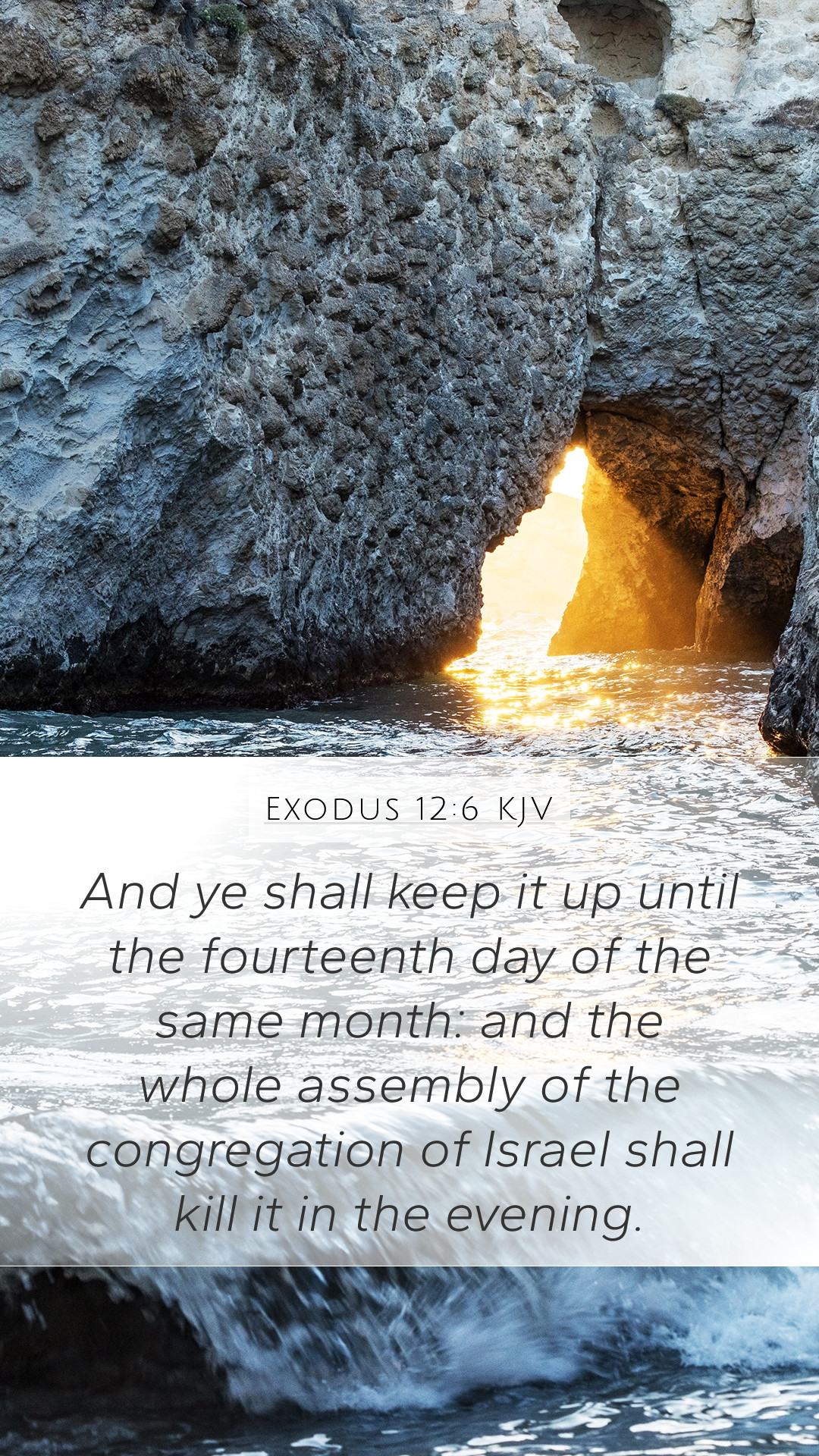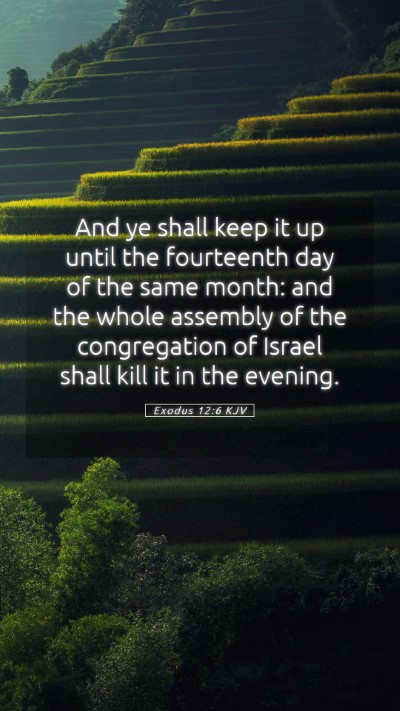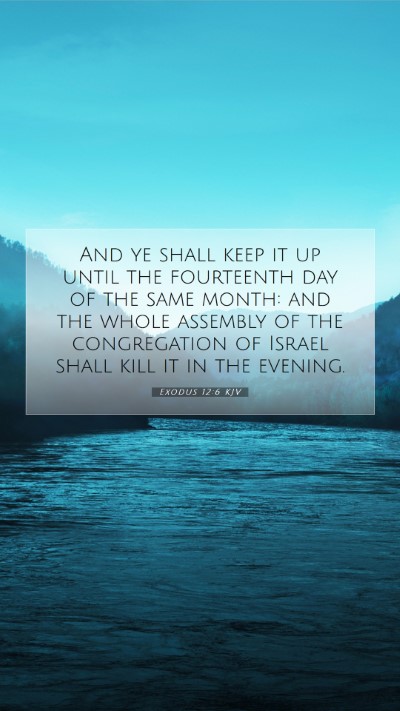Bible Verse Meaning and Interpretation
This verse is a pivotal moment in the journey of the Israelites towards their deliverance from Egypt, encapsulating the instructions given by God through Moses regarding the Passover lamb.
Contextual Background
In the historical context, the Israelites were enslaved in Egypt, and God intended to deliver them with plagues culminating in the death of the firstborn in Egypt. The Passover lamb was to be selected and kept until the evening before the plague, signifying preparation and dedication.
Commentary Insights
- Matthew Henry: He emphasizes the significance of the lamb as a symbol of Christ, portraying it as the pure and unblemished offering required for salvation. The act of keeping the lamb until the fourteenth day symbolizes the need for readiness and commitment before deliverance.
- Albert Barnes: Barnes elaborates on the communal aspect of the Passover, highlighting that this was to be a collective action, reinforcing the unity and shared faith of the Israelites in God's redemptive plan.
- Adam Clarke: Clarke points out the importance of the timing and observance, noting that twilight marks a significant transition, representing both the end of captivity and the beginning of freedom for the Israelites.
Theological Implications
Exodus 12:6 is rich in theological meaning pertaining to salvation. The lamb is a precursor of Jesus Christ, often referred to as the Lamb of God, who takes away the sins of the world (John 1:29). This foreshadows the sacrifice that is central to Christian faith.
Instruction for Observance
The command to keep the lamb until the fourteenth day indicates a period of anticipation and preparation, reflecting a time for reflection on God's deliverance. It speaks to the requirement for personal and communal readiness to receive God's salvation.
Symbolism and Application
The Passover lamb represents not only physical deliverance from Egypt but also spiritual deliverance from sin. For contemporary readers, Exodus 12:6 is a call to recognize the seriousness of sin and the provision of Christ as the atoning sacrifice.
Cross References
- John 1:29: "Behold, the Lamb of God, who takes away the sin of the world!"
- 1 Corinthians 5:7: "For Christ, our Passover lamb, has been sacrificed."
- Hebrews 9:22: "Without the shedding of blood, there is no forgiveness of sins."
Conclusion
Exodus 12:6 is a foundational verse in the understanding of biblical redemption and sacrifice, encapsulating key elements of faith that resonate throughout Scripture. The communal act of selecting and sacrificing the lamb prepares us for understanding the ultimate sacrifice of Jesus, enhancing our Bible verse understanding and Bible verse interpretations through a lens of historical and spiritual significance. This verse invites us into deeper Bible study insights as we apply its lessons to our lives and communities today.


